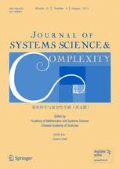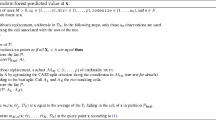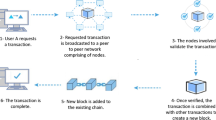Abstract
The FIFA World Cup™ is the most profitable worldwide event. The FIFA publishes global statistics of this competition which provide global data about the players and teams during the competition. This work is focused on the extraction of behavioural patterns for both, players and teams strategies, through the automated analysis of this dataset. The knowledge and models extracted in this work could be applied to soccer leagues or even it could be oriented to sport betting. However, the main contribution is related to the study on several automatic knowledge extraction techniques, such as clustering methods, and how these techniques can be used to obtain useful behavioural models from a global statistics dataset. The information provided by the clustering algorithms shows similar properties which have been combined to define the models, making the human interpretation of these statistics easier. Finally, the most successful teams strategies have been analysed and compared.
Similar content being viewed by others
References
Dobson S and Goddard J A, The Economics of Football, Cambridge University Press, Cambridge, 2011.
Aler R, Valls J M, Camacho D, and Lopez A, Programming robosoccer agents by modeling human behavior, Expert Systems with Applications, 2009, 36: 1850–1859.
Grollman D H and Jenkins O C, Learning robot soccer skills from demonstration, International Conference on Development and Learning, 2007, 276–281.
Jiménez-Díaz G, Menéndez H D, Camacho D, and González-Calero P A, Predicting performance in team games, INSTICC Institude for systems, Control Technologies of Information, and Communication, editors, ICAART 2011 — Proceedings of the 3 rd International Conference on Agents and Artificial Intelligence, 2011.
Leng J S, Fyfe C, and Jain L, Reinforcement learning of competitive skills with soccer agents, Knowledge-Based Intelligent Information and Engineering Systems, Springer, 2010, LNCS 4692: 572–579.
Vaz de Melo P O S, Almeida V A F, and Loureiro A A F, Can complex network metrics predict the behavior of nba teams? Proceeding of the 14th ACM SIGKDD International Conference on Knowledge Discovery and Data Mining, New York, USA, ACM, KDD’ 08, 2008.
Onody R N and De Castro P A, Complex network study of Brazilian soccer players, Phys. Rev. E, 2004, 70: 037103.
Bittner E, NuBbaumer A, Janke W, and Weigel M, Self-affirmation model for football goal distributions, EPL (Europhysics Letters), 2007, 78(5): 58002.
Cotta C, Mora A M, Merelo-Molina C, and Guervós J J M, Fifa world cup 2010: A network analysis of the champion team play, CoRR, abs/1108.0261, 2011.
Larose D T, Discovering Knowledge in Data, John Wiley & Sons, New Jersey, 2005.
Ng A, Jordan M, and Weiss Y, On Spectral Clustering: Analysis and an algorithm (ed. by Dietterich T, Becker S, and Ghahramani Z), Advances in Neural Information Processing Systems, MIT Press, 2001, 849–856.
Kohavi R and John G H, Wrappers for feature subset selection, Artif. Intell., 1997, 97: 273–324.
Fifa web site, 2011. http://www.fifa.com/worldcup/archive/southafrica2010/statistics/index.html.
Delac K, Grgic M, and Grgic S, Independent comparative study of PCA, ICA, and LDA on the FERET data set, International Journal of Imaging Systems and Technology, 2005, 15(5): 252–260.
Carroll S R and Carroll D J, Statistics Made Simple for School Leaders, Rowman & Littlefield, 2002.
Han J W and Kamber M, Data Mining: Concepts and Techniques, Morgan Kaufmann, 2006.
MacKay D, Information Theory, Inference and Learning Algorithms, Cambridge University Press, Cambridge, 2003.
Author information
Authors and Affiliations
Corresponding author
Additional information
This work has been partly supported by: Spanish Ministry of Science and Education under project TIN2010-19872, the grant BES-2011-049875 from the same Ministry, and by Jobssy.com company under project FUAM-076913.
This paper was recommended for publication by Editors FENG Dexing and HAN Jing.
Rights and permissions
About this article
Cite this article
Menéndez, H., Bello-Orgaz, G. & Camacho, D. Extracting behavioural models from 2010 FIFA world cup. J Syst Sci Complex 26, 43–61 (2013). https://doi.org/10.1007/s11424-013-2289-9
Received:
Revised:
Published:
Issue Date:
DOI: https://doi.org/10.1007/s11424-013-2289-9




